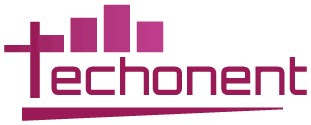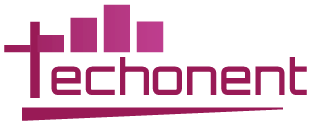
It's no secret that a company's success largely depends on the effectiveness of its team. But it isn’t enough just to gather together experienced, productive workers, hoping that this in itself will lead to the success of the company.
A team is like a large organism that is constantly changing, adapting to changes, growing or stagnating in development. Often, in order to not only build, but also to effectively manage such a productive team, you need to invest a lot of effort on the part of the management or project manager.
Why Does a Business Need a High Performance Team?
Having managed to build a high-performance team, a business gets a lot of advantages, including high productivity, motivation, innovative thinking, cohesion, and almost no internal conflicts. Such a team works faster, more efficiently, it easily adapts to changes and solves problems comprehensively.
But what are the purposes of building such a team, you may ask? Without a strong team, a company has no future. Such a company is uncompetitive and will never achieve its growth. If you don't build a strong foundation, the business will fail.
Having common goals, the right resources (e.g. technical and financial), a culture of trust and encouragement are all important to take a business to the next level.
The Foundation of a Successful Team
So, we have found out that a strong, cohesive team is the foundation of any business. We have analyzed the advantages of this approach and now we are ready to talk about the basic principles of building such a team.
The Team Must Know the Company’s Goals and Mission
As we said in the beginning, it isn’t enough to select the most talented and experienced specialists at the job interview. To be confident in the team, the team must also be confident in the company, and know what they are working for.
Each employee must understand his role, trust his colleagues, and know the company's development vector. When an employee understands what he or she is working for and what results are expected of him or her, it adds motivation and engagement. In turn, an open and clear mission of the company allows to create unity inside and increases trust between employees.
This is especially important for distributed teams, when all communication is reduced to chats and online calls. In this case, it is especially important to discuss the development strategy and make sure that the information reaches every participant.
The Team Must Trust
If employees have no voice to express their thoughts, their suggestions and ideas are routinely rejected by management, and coworkers don’t support each other, it affects efficiency and leads to conflict.
Create a culture of trust within the team. Have open conversations, discuss ideas, and listen to each other carefully. For example, a project manager should promote transparency in the team, not publicly punish everyone for mistakes, but competently make conclusions from the experience for everyone.
The same goes for internal conflicts. A project manager with excellent communication skills always plays an important role in conflict management. You must listen to each side and come to a common result, justifying each decision and explaining why it will be good for everyone, not just one side.
By the way, it doesn't matter if you are just a beginner or an experienced project manager, it never hurts to pump up your communication skills. In the IT Project Management course, students learn to resolve conflicts and anticipate them in advance. The program provides simulated situations that may arise in real practice and offers working ways to resolve conflicts.
The Team Must Have a Leader
As we can see, a team leader knows how to resolve disputes and communicate effectively with the team and customers. But these are not the only skills a true leader possesses.
A leader also knows how to assess risks, prioritize tasks, negotiate, manage performance, and actually build a strong team.
A leader doesn't just follow deadlines and set tasks. This person creates an atmosphere of cohesion. He not only works on himself, but also inspires others to change and work effectively.
A true leader knows how to listen, give advice, help find solutions, support and guide. He knows the strengths of his team, can delegate tasks and rely on it completely. In turn, the team has a better chance of becoming unified and more productive with the support and encouragement of a leader.
The Team Must Have the Necessary Tools
A good team requires the right tools. Even the most talented employees can't work effectively if processes are chaotic, tasks get lost, and communication suffers.
Project management. One key tool is project management systems. Trello, Asana, Jira, Monday.com — choose any one that is good for the team's needs. These are not just cards, but organized systems designed to make it easy to track and complete tasks.
Automation. Another important aspect is automation. Repetitive processes, routine tasks and reports can be outsourced to specialized services, freeing up time for more valuable work. The use of AI tools, CRM systems, chatbots and automated reminders helps to reduce the workload and increase the speed of task completion.
Communication. Good communication is the foundation of any company. Even with the latest technological tools in their arsenal, a team cannot survive a day without communication services. Google Meet, Slack or even WhatsApp will help you stay in touch, discuss progress, solve problems, and even hold online team building events if the team works remotely.
Team development. A high-performing team should not only work well, but also have proper recreation and development. To make the team stronger, provide employees with relaxation areas or repay part of the payment for sports clubs. Provide the team with opportunities for professional growth — training, language courses, sessions with a psychologist. Mental and physical health shouldn’t be neglected; value your employees.
Final Words
An effective team is not about heroism and recycling, but about competent organization of work. Tools, processes and communication culture are the three pillars on which productivity is built.

